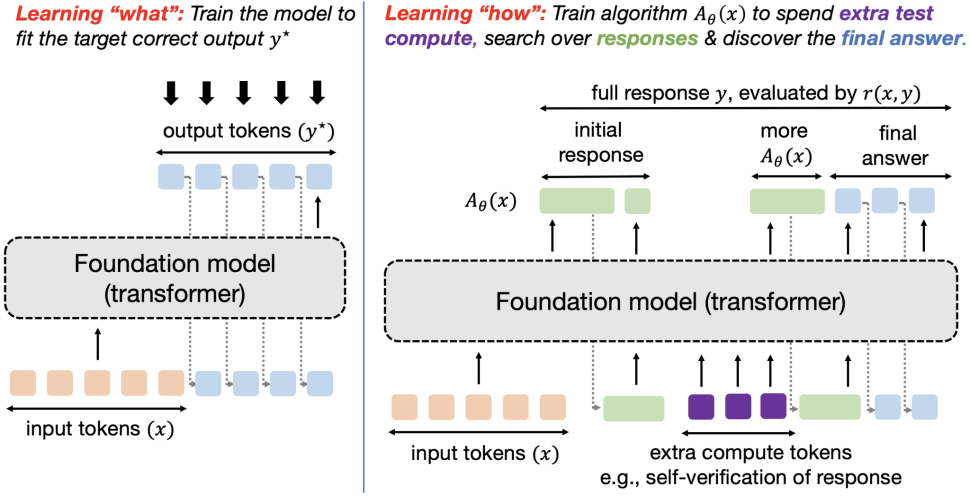Top React Native Features Startups Should Explore in 2025
Is react native good to use for a startup? If you’re building an app with limited resources, tight deadlines, and the need for scalability, the answer is yes. React Native app development has become a top choice for startups because it offers a balance of efficiency, flexibility, and performance that’s hard to match. With React Native, you can develop apps for iOS and Android simultaneously without compromising quality. Its rich features and extensive community support empower developers to create apps that deliver seamless user experiences while staying cost-effective. We get it; choosing the right platform for mobile development can be daunting. Based on our experience in building scalable apps, we’ve outlined essential tips and key React Native features to show why it’s a preferred choice for startups. Let’s get started. Key React Native Features Startups Should Leverage First, let’s look at what features it provides that make it a great choice among developers. Here are some of the standout capabilities that make it a reliable choice: 1. Cross-Platform Compatibility React Native's ability to build apps for both iOS and Android from a single codebase offers an undeniable advantage for startups. Instead of managing separate teams for each platform, developers focus on one project, accelerating the development process. Bloomberg on using react native for their app development, said Tool that truly delivers on the promise of cross-platform app development. For startups, this means faster time-to-market and reduced costs. You get the benefit of reaching users on both major platforms without the added complexity of maintaining two distinct codebases. Whether you're rolling out an MVP or scaling up, this cross-platform efficiency helps keep things streamlined and on track. What this means for startups: Speed up development with a unified codebase. Save on costs by eliminating the need for separate development teams. Ensure a consistent, high-quality experience for users on both iOS and Android. 2. Rich Pre-Built Libraries React native offers a wide collection library of pre-built components that can significantly speed up the development process. These libraries cover a wide range of functionalities, from UI elements to complex app features. Instead of spending time building basic components from scratch, your team can leverage these ready-made solutions to focus on what truly sets their app apart. For example, libraries like React Native Navigation quickly implement robust navigation systems. This library simplifies managing app screens and provides smooth transitions. What this means for startups: Accelerates app development by reducing the need to build from scratch. Access to high-quality, community-tested libraries that enhance app functionality. Enables faster deployment, allowing startups to stay ahead of the competition. 3. Native-Like Performance React Native doesn’t just offer hybrid solutions—it compiles native components that deliver the performance and responsiveness users expect from fully native apps. By utilizing native code, React Native ensures that your app runs smoothly, with seamless animations, fast load times, and an interface that feels quick and fluid. This approach to React Native mobile development allows your app to handle complex tasks without sacrificing user experience, ensuring that animations run smoothly, load times stay fast, and interactions feel as responsive as any fully native app. What this means for startups: Offers native-like performance on both iOS and Android. Ensures fast load times and smooth animations. Provides a seamless user experience that meets expectations. 4. Strong Community Support One of the key reasons React Native app development has become so popular is the strong community behind it. With thousands of developers actively contributing, the React Native ecosystem is continuously growing and evolving. This means that no matter the challenge, there's a wealth of resources—ranging from tutorials to open-source projects—that can help you overcome obstacles quickly. Startups benefit greatly from this active community. Whether you need a solution to a coding problem or advice on best practices, the community is there to provide support. What this means for startups: Access to a large, active community for quick support. Continuous updates and improvements from contributors. A wealth of resources and solutions to accelerate development. 5. Hot Reloading for Instant Feedback Hot reloading is a standout React Native feature. It allows developers to instantly see changes that are made to the code without restarting the entire app. his feature makes the development process faster and more efficient, as developers can tweak the code and immediately observe the results in real-time. With this feature you can reduce the time spent on debugging. This means that apps can be tested, refined, and optimized without wasting ti

Is react native good to use for a startup?
If you’re building an app with limited resources, tight deadlines, and the need for scalability, the answer is yes. React Native app development has become a top choice for startups because it offers a balance of efficiency, flexibility, and performance that’s hard to match.
With React Native, you can develop apps for iOS and Android simultaneously without compromising quality. Its rich features and extensive community support empower developers to create apps that deliver seamless user experiences while staying cost-effective.
We get it; choosing the right platform for mobile development can be daunting. Based on our experience in building scalable apps, we’ve outlined essential tips and key React Native features to show why it’s a preferred choice for startups. Let’s get started.
Key React Native Features Startups Should Leverage
First, let’s look at what features it provides that make it a great choice among developers. Here are some of the standout capabilities that make it a reliable choice:
1. Cross-Platform Compatibility
React Native's ability to build apps for both iOS and Android from a single codebase offers an undeniable advantage for startups. Instead of managing separate teams for each platform, developers focus on one project, accelerating the development process.
Bloomberg on using react native for their app development, said
Tool that truly delivers on the promise of cross-platform app development.
For startups, this means faster time-to-market and reduced costs. You get the benefit of reaching users on both major platforms without the added complexity of maintaining two distinct codebases. Whether you're rolling out an MVP or scaling up, this cross-platform efficiency helps keep things streamlined and on track.
What this means for startups:
- Speed up development with a unified codebase.
- Save on costs by eliminating the need for separate development teams.
- Ensure a consistent, high-quality experience for users on both iOS and Android.
2. Rich Pre-Built Libraries
React native offers a wide collection library of pre-built components that can significantly speed up the development process. These libraries cover a wide range of functionalities, from UI elements to complex app features.
Instead of spending time building basic components from scratch, your team can leverage these ready-made solutions to focus on what truly sets their app apart. For example, libraries like React Native Navigation quickly implement robust navigation systems. This library simplifies managing app screens and provides smooth transitions.
What this means for startups:
- Accelerates app development by reducing the need to build from scratch.
- Access to high-quality, community-tested libraries that enhance app functionality.
- Enables faster deployment, allowing startups to stay ahead of the competition.
3. Native-Like Performance
React Native doesn’t just offer hybrid solutions—it compiles native components that deliver the performance and responsiveness users expect from fully native apps. By utilizing native code, React Native ensures that your app runs smoothly, with seamless animations, fast load times, and an interface that feels quick and fluid.
This approach to React Native mobile development allows your app to handle complex tasks without sacrificing user experience, ensuring that animations run smoothly, load times stay fast, and interactions feel as responsive as any fully native app.
What this means for startups:
- Offers native-like performance on both iOS and Android.
- Ensures fast load times and smooth animations.
- Provides a seamless user experience that meets expectations.
4. Strong Community Support
One of the key reasons React Native app development has become so popular is the strong community behind it. With thousands of developers actively contributing, the React Native ecosystem is continuously growing and evolving. This means that no matter the challenge, there's a wealth of resources—ranging from tutorials to open-source projects—that can help you overcome obstacles quickly.
Startups benefit greatly from this active community. Whether you need a solution to a coding problem or advice on best practices, the community is there to provide support.
What this means for startups:
- Access to a large, active community for quick support.
- Continuous updates and improvements from contributors.
- A wealth of resources and solutions to accelerate development.
5. Hot Reloading for Instant Feedback
Hot reloading is a standout React Native feature. It allows developers to instantly see changes that are made to the code without restarting the entire app. his feature makes the development process faster and more efficient, as developers can tweak the code and immediately observe the results in real-time.
With this feature you can reduce the time spent on debugging. This means that apps can be tested, refined, and optimized without wasting time, leading to faster releases and more efficient development cycles.
What this means for startups:
- Speeds up development by allowing instant changes without restarting the app.
- Reduces debugging time, enabling faster iterations.
- Improves overall productivity by streamlining the development process.
6. Declarative Syntax
The declarative syntax is one of the key reasons to choose to react native for startups. This approach allows developers to define how the UI should look based on the app’s current state, and React Native takes care of updating it automatically. By focusing on what the UI should display instead of how it should change, developers can write cleaner, more understandable code.
With React Native app development, the code is more concise and maintainable, allowing teams to build and scale apps faster.
What this means for startups:
- Simplifies UI development by describing the desired state.
- Improves code readability and long-term maintainability.
- Speeds up development, helping startups deliver products faster.
7. Performance Optimization
When it comes to React Native app development, performance is a top priority. Developers can use native modules and APIs with React Native, and therefore, the application can be optimized for everything ranging from complex animations to handling a lot of data.
For any company, getting the app to perform well is a must. With its profound libraries, extensive features performance optimization can be a little less tiresome. Optimization can lead to a faster, smoother app that keeps users engaged.
What this means for startups:
- Gives you control to optimize performance for specific app functions.
- Speeds up the app with techniques like lazy loading and fewer re-renders.
- Creates a faster, smoother experience that keeps users coming back.
Things to Consider When Choosing React Native for Startups
Choosing the right mobile framework can make a world of difference down the road, but picking the wrong one can cause headaches you’ll want to avoid. Here are four things we think are crucial to consider for react native mobile development:
1. Project Scope and Complexity
React Native is fantastic for many apps, especially those aiming to hit the ground running with an MVP. But if your app requires heavy platform-specific features or complex functionalities, you may want to reassess. Understanding the complexity of your project will help you decide if React Native can handle the job.
2. Team Expertise
If your team already has experience with JavaScript and React, you’re in a good spot. But if not, you’ll need to consider the time and resources required to get up to speed with React Native. It's essential to make sure your team feels comfortable working with it, or you may run into challenges during development.
3. Performance Needs
While React Native generally delivers great performance, it may not be the best choice for apps that rely heavily on animations or real-time data. Testing performance early on is a must so you can spot any potential issues before they become bigger problems.
4. Long-Term Maintenance
React Native’s single codebase is a huge advantage for maintenance, but keep in mind that platform-specific updates can sometimes take longer to implement. You’ll need to keep up with regular updates and testing to ensure the app remains smooth and stable over time.
Popular Companies That Use React Native App Development
Some of the most prominent companies of the world adopted React Native in order to provide efficient and friendly apps.
Instagram
Instagram adopted React Native to enhance its development process. Features like push notifications and real-time updates were seamlessly integrated, providing a smooth experience for millions of users worldwide.
Myntra
Myntra integrated React Native into its iOS app to improve performance and user experience. With faster load times and smoother navigation, the app became more reliable for its millions of users.
Discord
Discord, one of the giant communication platforms, developed its mobile application using React Native. It helped deliver a consistent user experience across iOS and Android while saving much more development time.
Uber Eats
Uber Eats uses React Native for restaurant and driver interfaces. That's what made it highly streamlined in its web dashboards on mobile platforms, which allowed it to easily move forward with the transition.
Wrapping Up
We hope this blog has given you a clear understanding of React Native, its standout features, and why it’s a popular choice for startups. From its cross-platform capabilities to its strong community support, React Native makes app development faster, more efficient, and cost-effective.
That being said, suitability depends entirely on the needs of the specific application you are building. If you want to develop quickly and share the codebase for iOS and Android, choose React Native.
No matter what your goal or challenge may be, React Native provides the best foundation to support your goals. If you're still unsure, we're here to help guide you through your app development process.





















